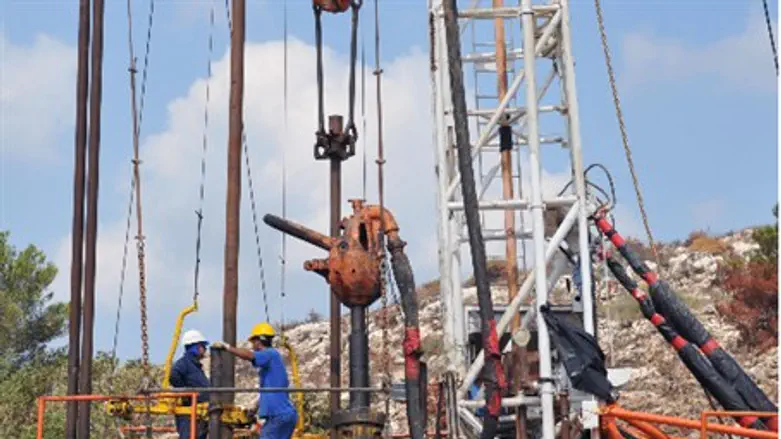
History was made on Saturday evening as natural gas began flowing from the regasification ship hired by the Israel Electric Corporation (IEC) to its power stations.
The ship, anchored about ten kilometers from the Hadera coast, was connected last week to the marine buoy and as of Saturday night, natural gas began flowing from the LNG (liquid natural gas) ship through an underwater pipeline directly to the Company's power stations throughout the country.
The LNG is imported from Trinidad, a spokeswoman from the IEC told Arutz Sheva.
Yiftach Ron-Tal, Chairman of the IEC Board of Directors, stated that this is a historical moment for the State of Israel's energy economy, and the liquid gas project is an energy insurance policy for the future to generate reliable, available, and quality electricity for Israel's citizens.
“This is a historical step and the first time in which IEC uses liquid gas as an alternative to compensate for the lack of natural gas,” he said. “LNG is one of the basic components in our journey to create the required and appropriate strategic reserves in the natural gas system in Israel and to establish the country's energy independence, its security, and its national strength. These considerations were the basic premise of [Water and Energy] Minister Landau's decisions in directing us to bring LNG to Israel.”
The project can supply between 1.5 to 2 BCM and is the additional source of energy that does not rely on the sole gas pipeline in the south of the country, and actually allows the IEC more flexibility, redundancy, and backup during times of crisis.
2013 will be remembered in the history of the energy economy as the year of the gas revolution in Israel and liquid gas is just another important tier, noted the IEC in a statement.
Eli Glickman, IEC President and CEO, said that “this is real news and that after the beginning of gas production from the Tamar field during 2013, LNG will become a method for storing gas, both as a backup for faults and as a response to the increase in demand beyond the production capacity of the Tamar field.”
Yaacov Hain, IEC Deputy President and CEO, who led the project, expressed great satisfaction from the gas flowing to the generation units, and stated that this is an important event and is a significant reference point in the Company's reliance on additional energy sources throughout the world.
Natural gas imported from abroad is cheaper than fuels such as diesel and fuel oil and is considered environmentally friendly.
Last month Israel launched an offshore platform for natural gas, a step towards energy self-sufficiency for the first time in history.
The platform, taller than Israel’s highest building, is located 24 miles west of the southern port city of Ashkelon and is scheduled to receive gas in April.